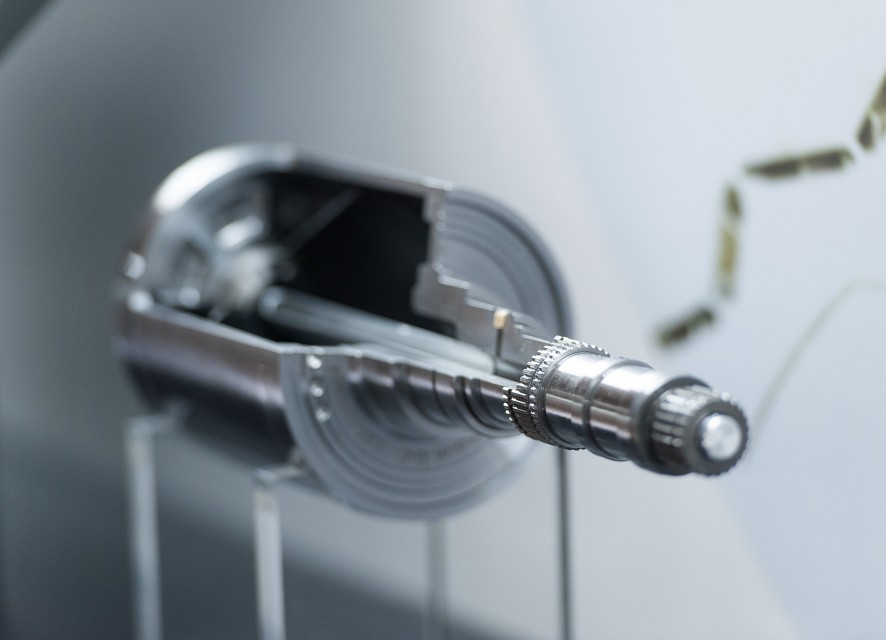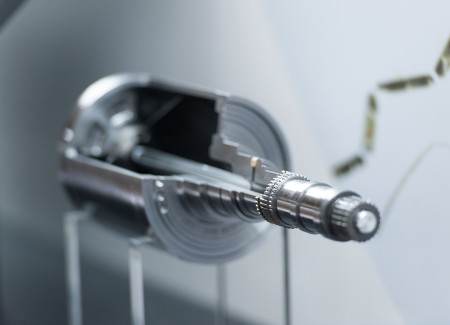Trade press, 2015-11-04, 10:02 am
Efficient drives: Innovative motor design thanks to new high-strength, non-oriented electrical steel grades from ThyssenKrupp Steel Europe

The next generation of electric motors will have to meet enormous requirements: They need to offer high speeds and increased torque but at the same time be energy-efficient, save weight and conserve resources. ThyssenKrupp Steel Europe offers solutions to these challenges and has developed electrical steel grades for drive motors that allow higher torques and other benefits. At this year’s Blechexpo in Stuttgart from November 3 to 6, 2015, the company will be displaying rotor and stator of an electric motor in hall 4, booth 4308.
Weight down, torque up
To enhance efficiency, ThyssenKrupp’s developers took a close look at the heart of hybrid and electric vehicles, the drive motor. The non-oriented electrical steel specialists at ThyssenKrupp Steel Europe in Bochum developed new high-strength and application-optimized electrical steel grades, such as the grade 280-30 AP with a guaranteed yield strength of more than 400 megapascals (MPa) which is being presented at Blechexpo. This reduces magnetic leakage, which makes it possible to increase torque. As a result of this enhanced efficiency, less magnet material is required which appreciably lowers costs. In addition the new developments provide magnetic guarantees for higher frequencies of, for example, 400 Hz while at the same time guaranteeing mechanical properties for room temperature and rolling direction.
Rethinking the rotor shaft
At the same time, engineers at ThyssenKrupp Presta Camshaft set about rethinking the motor rotor shaft, moving away from the usual one-piece design to a modular solution. For this, the company’s research department developed a new product architecture; the rotor shaft is hollow, which not only reduces weight but also allows multi-functional use. The shaft is covered with tailored steel from ThyssenKrupp Steel Europe. Rotor shaft and rotor laminations are thus ideally matched to each other: As a result the rotor weighs almost two kilos less than competitor models. This lightweight solution means that less energy is required, so battery capacity and weight can be reduced. Initial test results confirm these advantages for the hybrid and electric vehicles of tomorrow.
Visit us at Blechexpo 2015 from November 3 to 6 in Stuttgart, hall 4, booth 4308.




